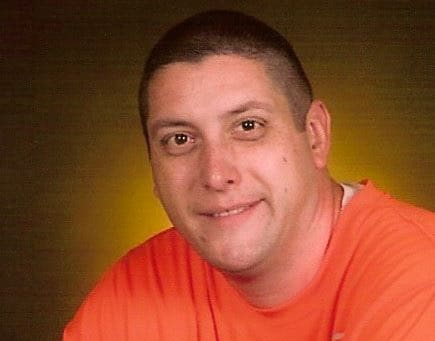
Smart guy, that Doug Boyd.
He’s what they call an “intellectual sponge,” and he’s damn proud that much of the stored-away knowledge has something to do with his passion for sports.
He knows all the names, positions, and record books along with all the current stats for each of the important players in – well, just name a sport – and “Dougie” knows what he speaks about and cites facts accurately so he bases his opinions on reality instead of misinformed information.
Not many do that in the world of sports debate.
But Mr. Boyd is much more than a brain full of names and numbers, and that’s because he’s chased and caught his dream of teaching and coaching which, IYKYK, are one in the same with the kind of classroom the only difference. He understands that “2+2” doesn’t always “= 4” for everyone, and that’s why he follows a student’s personal pace until “=4” is the final – and correct – solution to, yes, the math problem, but also to many other should-be simple situations.
That’s because Coach Boyd believes in you and us and every single student he encounters because he’s a firm promoter of personal potential as it pertains to curricula and extracurriculars. When it comes to coaching, he’s learned from legends like Mark Nardone, Mike Young, Chris Daugherty, Sam Andy, and so many others, and that means it’s about “Team” and everything that goes into a unified effort toward a common goal.
Oh, and as far as “Dougie” is concerned, it’s him and his mother, Dottie, versus the world in a variety of ways, and if you don’t like it, well, find another seat at a different table because this good man judges life’s contents like Santa Claus does because the good people get his gifts and the bad people are, well, left to play with their own self-absorption.
Most importantly, this educator realizes “winning” transcends the points on the scoreboard.
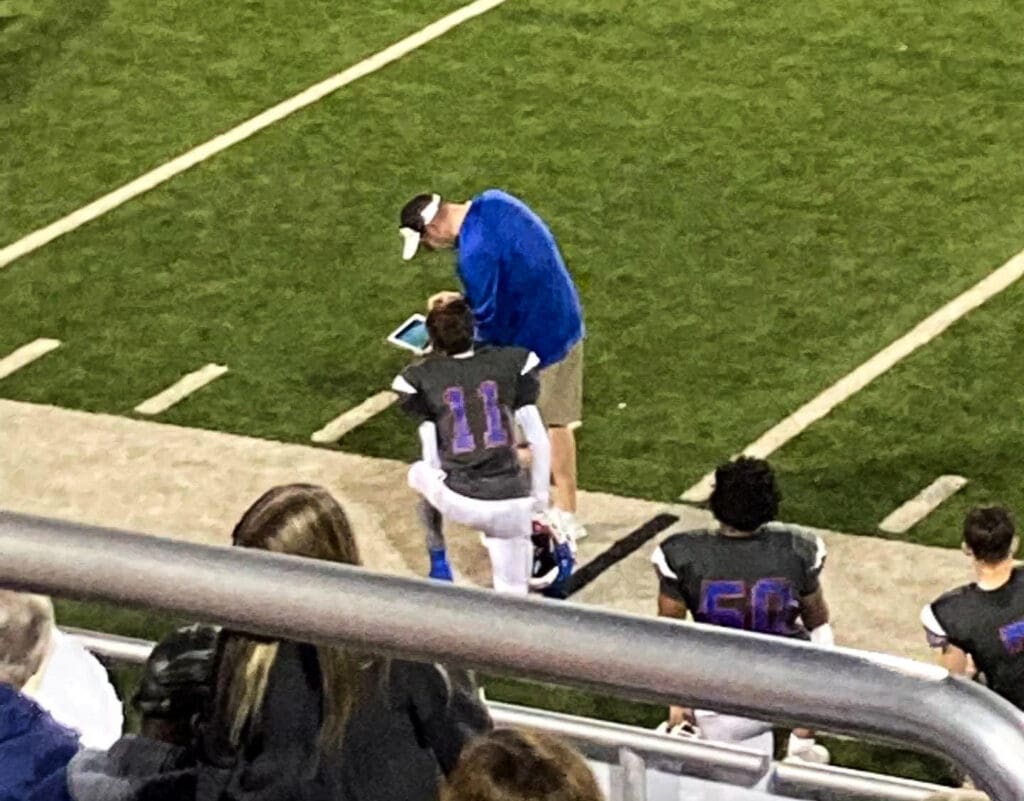
Of all the coaches you have had as a team member in any sport, which one was the best mentor?
Every coach I had growing up with had an impact, but all in different ways.
Sam Andy had a tremendous impact because of the things he did for his players that other people didn’t see. Whether it was letting a kid use his car for prom, having them over for a meal that Sandy cooked, or just advice in general, Sam was always there. For me personally, he knew I was heading to WVU and he called Gale Catlett to let him know that I was going to WVU and that I might be interested in helping out or being around during basketball season. When I went to the two-day walk-on tryout both years I was there, the coaches talked to me, knew who I was, and kind of helped me get through everything.
Even though I wasn’t “good enough” to play there or be on the team, it allowed me to make friends that I otherwise wouldn’t have thanks to Coach Catlett and his staff, and that only happened because of the phone call Sam made.
I have to give mention to a couple of others, too, though. Mark Nardone was a tremendous help to me after high school, especially when I went back to school to teach and coach. And I got some of the best life advice from Bill Stewart during a football spring practice and coaching class I took at WVU.
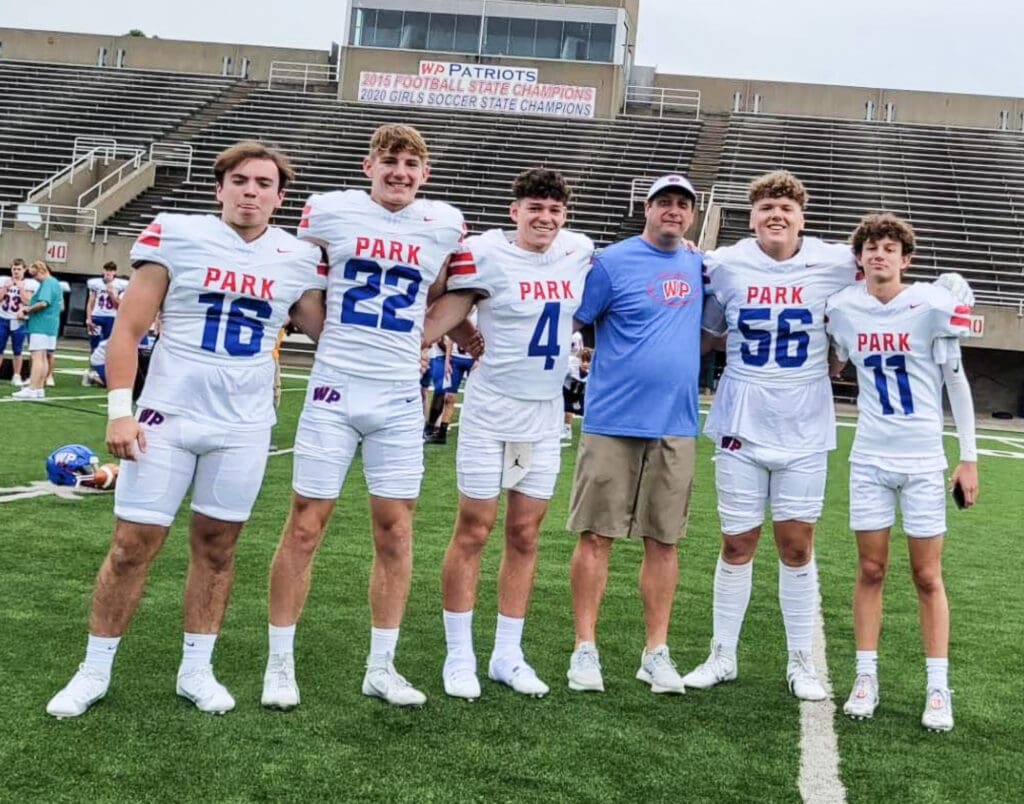
What is your favorite story about the legend Sam Andy?
I think my favorite Sam Andy stories are all about how he would get people riled up at rival schools.
During my time in high school, we were still playing Wheeling Central and Sam and “Doobie” Dailer would go back and forth at each other in the paper and I think people came more because of their “trash talk” back and forth than because of the game itself. At one point, I remember Sam said “Central has the best team money can buy.”
Also, during my time in high school, we had a student/athlete who came to Park from Marshall County. The weekend of the state tournament my senior year, John Marshall announced that they were dropping us (Wheeling Park) from their basketball schedule. After losing a tough game in the State Championship game to Beckley Woodrow Wilson, a reporter from Charleston doing a post-game interview in the locker room said to Sam, “We heard that one of your rival schools is dropping you from their schedule next year, what are your thoughts about that?”
Sam, without missing a beat, replied, “When you’re 7-67 against a team, you got to quit playing them some time, I guess” (referring to John Marshall’s record vs Wheeling Park).
It was just how quickly those things came out and how easily it riled up people from those schools and really added fuel to the fire of those rivalries and rivalry games.
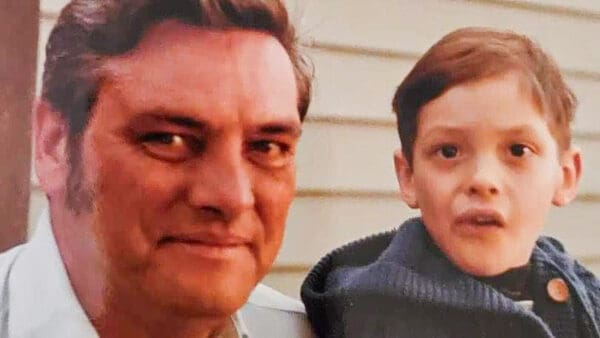
What were the best parts involved with your mother working at Wheeling Park High School when you were a student, and now as an educator and coach?
As a student, I got to see her every day at school, I got to know teachers, principals, staff, etc., better than a lot of “regular students,” and it helped keep me “in line.”
I didn’t have to remember things like lunch money or picture day or whatever was going on. Knowing that if I got in trouble at school or my grades were slipping or I wasn’t turning in my homework, she was going to know before I probably even realized, and it made me “do better” at that stuff because 1) I would have been in more trouble at home and I didn’t want that and 2) because I know it would have embarrassed her at work and the last thing I ever wanted to do was embarrass my parents or the “family name.”
With me teaching at other schools, her biggest impact there is if I need to get a hold of the copy center or someone at the high school, she is able to give me the best way to go about it and point me in the right direction.
As a coach, she is able to get me the information I need quickly. For example, a student/athlete had a “family emergency” and had to leave school, so she let me know so 1) I could reach out to him and make sure everything was ok, and 2) I knew I would probably not have the kid available to play that day.
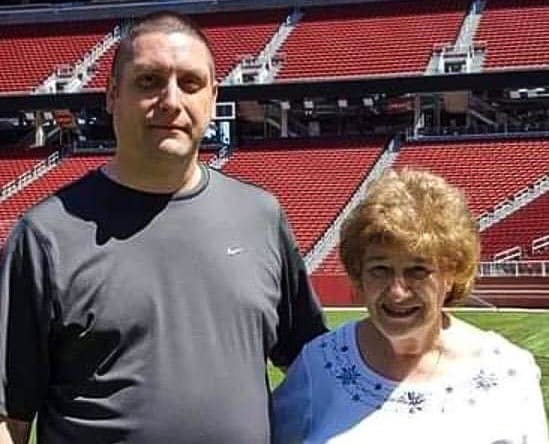
When it comes to life lessons, what are the three most important things a mentor can offer a young person?
The first thing is trust. I try to earn the trust of the players I coach. I want them to know they can come to me and I will try to help them, or get them help, in any way I can. I will never lie to a student/athlete of mine. They might not like the answer, but they’re going to get a truthful one. That is for everything, not just sports.
The second life lesson is “you will be judged by the company you keep.” I was taught this lesson at home, and it’s so true. If the “friends” you are always with aren’t doing “the right things,” whether true or not, it is going to be assumed that you aren’t doing “the right things”. Your friends’ goals might be different than your goals and the things they do may negatively affect the chances of you reaching your goals. Mark Nardone used to always say, “The reason people fail instead of succeed is because they trade what they want the most for what they want at the moment.”
The third is simply to do everything in my power and control to give them the tools they need to succeed in life. That includes work habits and accountability that come with being held to a standard that you’re going to show up and work hard every day. It possibly could include ways to better their situation as far as helping them develop as athletes to potentially receive scholarship dollars for college.

